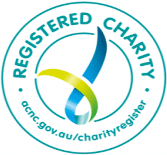Racism by definition is a generalisation: applying perceived characteristics and abilities of a race to everyone within that race, giving way to comparisons of superiority or inferiority. Is comedy that utilises racism—or other identity discrimination such as sexism—detrimental to the state of affairs? In other words, does it pronounce and encourage the behaviour of stereotyping?
The issue is raised with discussions surrounding Australia Day, a play of comedic satire based around a committee defining what is to be a “true blue Aussie”, and whether it is okay to laugh at a joke based on racism. Does simply laughing at a race-based joke mean you have racist tendencies? Of course not. Comedy is, after all, there to make you laugh; sometimes comedians need to edge towards controversial topics to keep material fresh and up to date—some will find it offensive and others won’t, it’s really easy to define the line once it has been crossed.
Trailer for Australia Day
Racist jokes
Take the social circle example: Australia is a multicultural country and you may find an Irishman, an Englishman and a Scotsman amongst your friends. In these situations, telling a joke based on a racial stereotype may not offend your friends. It’s about the joke’s impact: there is probably a low impact if your Irishman friend makes jokes about being Irish. Similarly, making a joke about being Irish to the Irishman may also have a low impact but this is more dependent on the individual, their opinions and the group as a whole. These situations rarely seem clearcut, and a high impact remark can render the recipient in an awkward post-joke situation resulting in forced nervous laughter or even left shifty-eyed with an inaudible schwa, scanning the room to judge others’ reactions.
Whether the joke has an acceptable impact or not, who is to say whether the joke should be told in the first place? It is possible that the mere telling of the joke is detrimental to behaviour, encouraging comparisons and jokes in places where it simply would not be appropriate. Then on the other hand, comedy can be used to point out differences and potential inequality, bringing it into the limelight ripe for discussion and provoking thought.
Psychology Today points to a study that explains: the outcome of derogatory jokes about race only emphasises one’s pre-existing views. For example, if you are an upstanding citizen and consciously make an effort to not behave in a racist way, hearing bigoted quips in conversation will not necessarily alter your behaviour or encourage you to do or say something racist in the future. However, individuals who already hold negative racially-biased views show that they are more likely to make further derogatory comments in the future. In this situation, the joke is removing inhibitions allowing individuals to falsely conclude that others share their skewed opinions regarding a particular race or group.
“…license to say nigger…”
— Chris Rock
Also Read: Solution to Racism in Australia
The conclusion really is a double-edged sword unfortunately. Racist jokes can help promote anti-racist movements by drawing attention to situation. The best thing to do, of course, is to be aware and speak up when witnessing something. However jokes can be misinterpreted and their satirical nature missed, resulting in further outspoken negative and racist comments. A good example comes from Chris Rock’s “Niggas vs. Black People” skit in ’96 and ’97. The skit used negative stereotypes to compare behaviours within society but Rock quickly decided to remove it from his show because “racist [people] thought they had license to say nigger”.
Rock’s subsequently removed show
Is there a conclusion?
One can never really know someone’s true opinions so caution should be used to not exacerbate the situation whilst general awareness is raised. If you hear a racist joke and you don’t know the person’s intentions, the most appropriate initial response is to let the person know that you don’t think their joke is appropriate.
For more information about racism, please see alltogethernow.org.au/racism.


